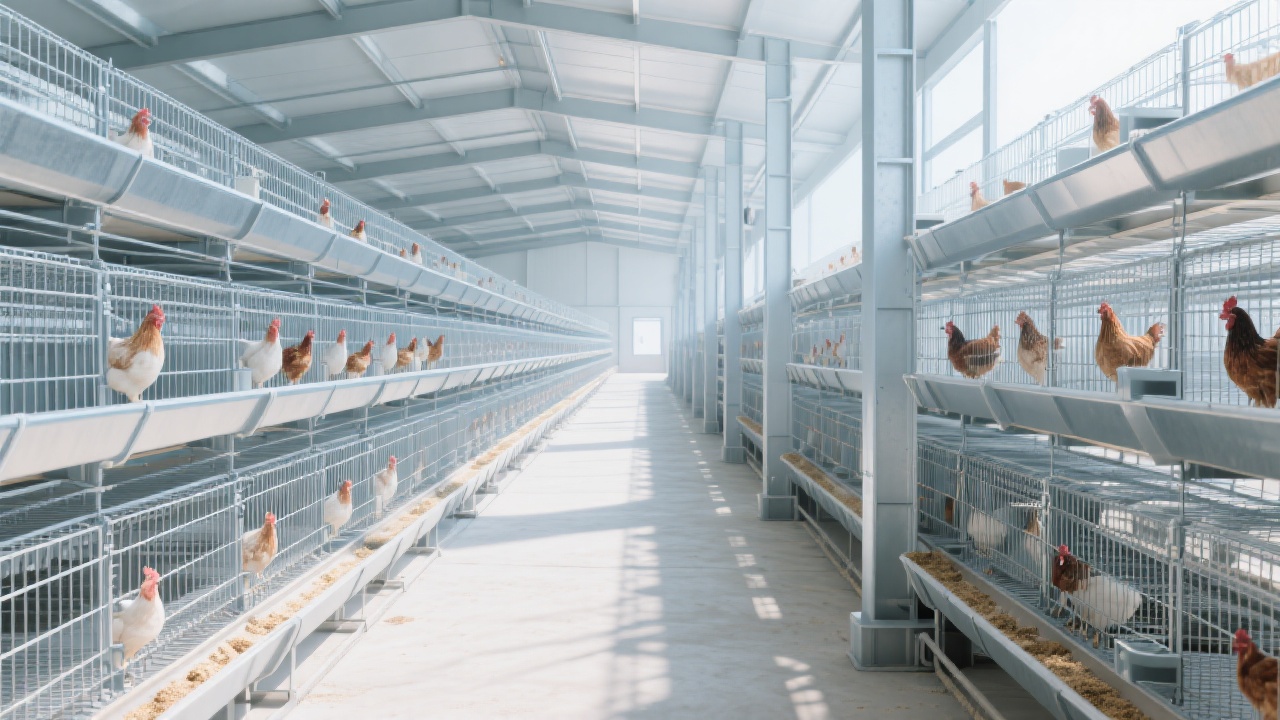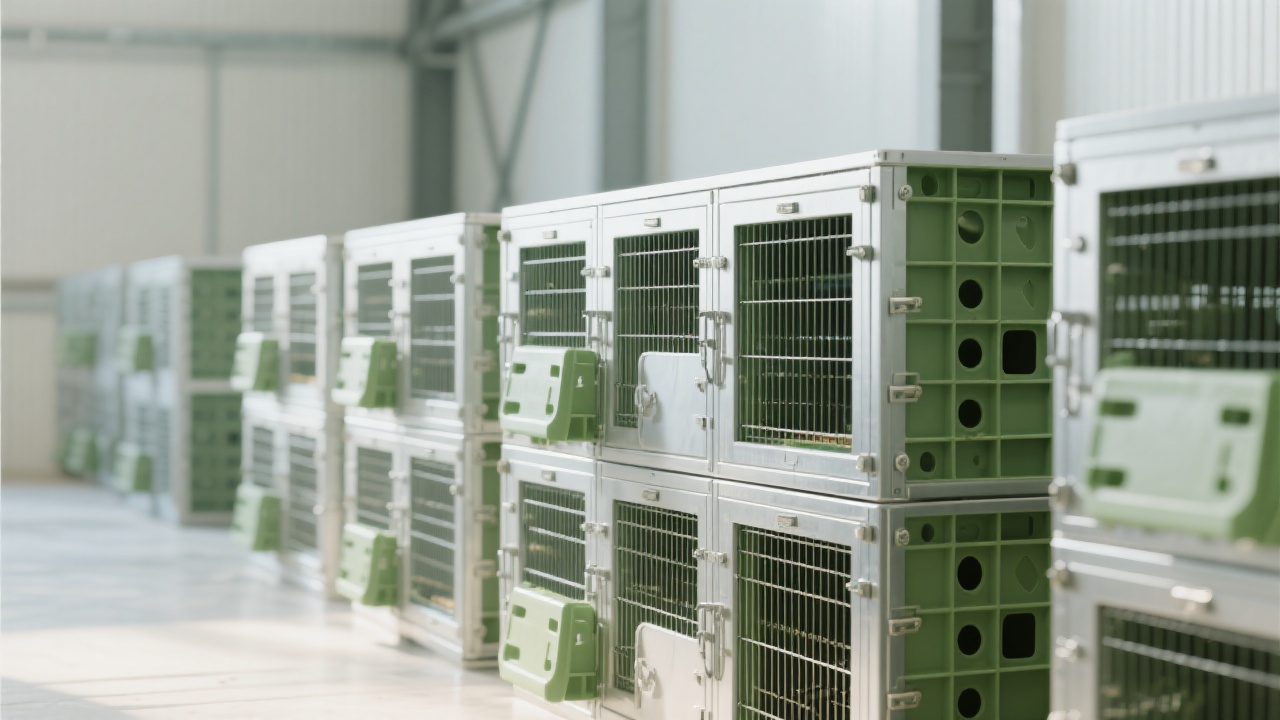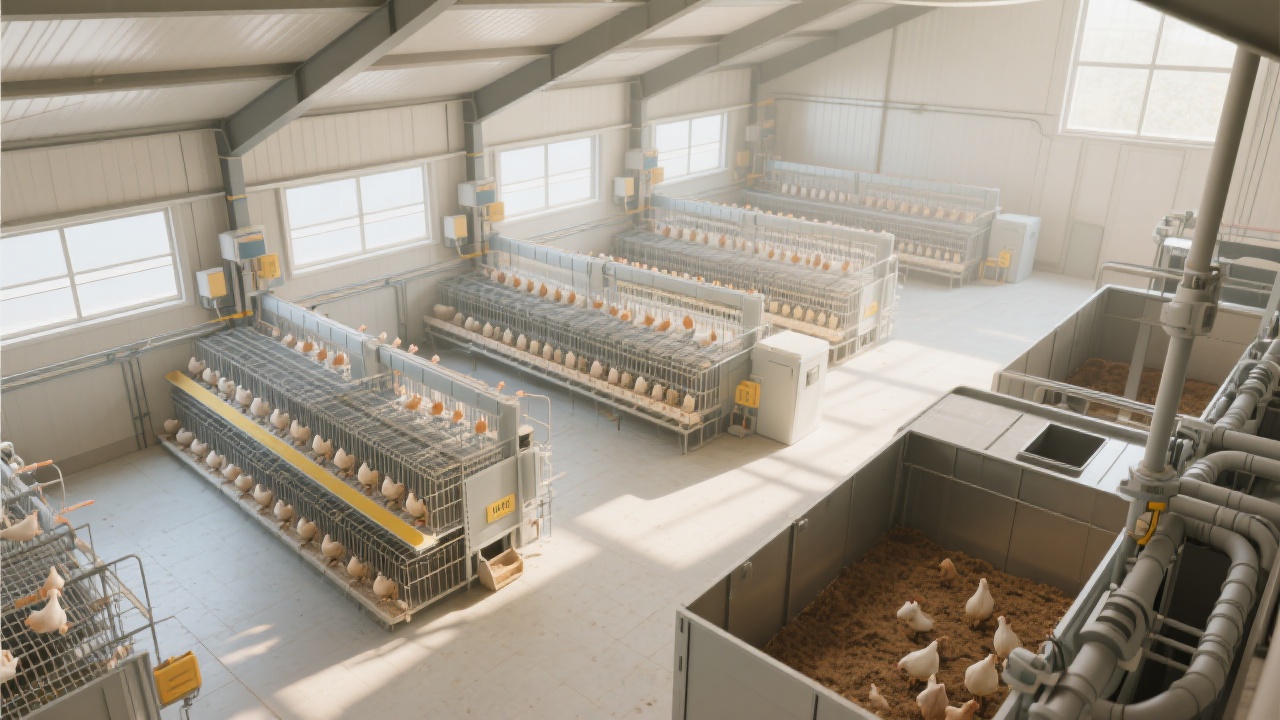
Modern large-scale egg layer farming faces persistent challenges regarding hygiene, environmental control, and productivity. Zhengzhou Livi Mechanical advances this domain by integrating high-efficiency H-type layered chicken cages with cutting-edge automated manure removal systems. This synergy not only achieves no dead-angle cleaning but also significantly reduces ammonia emission levels, mitigating disease risks and advancing flock health.
The cornerstone of Zhengzhou Livi’s solution lies in seamlessly harnessing two primary automated manure removal methods — scraper and screw conveyor systems. Scraper systems employ a mechanical blade to horizontally and vertically clear manure accumulations beneath cages, preventing buildup hotspots. Conversely, screw conveyors elevate waste material away from the cage base efficiently, simplifying downstream processing.
Both systems emphasize energy efficiency by minimizing motor power consumption—typically ranging from 0.5 to 1.2 kW per 1000 hens—and optimizing operation cycles aligned with animal activity patterns. Data from multiple commercial-scale farms indicate up to 30% lower electricity usage compared to manual cleaning, with cleaning cycles reducing labor costs by 45%.
The patented H-type layered cage design sets Zhengzhou Livi apart by incorporating strategically positioned gutters and sloped floors that guide all waste towards automated collection points—eliminating blind spots. This architectural innovation ensures comprehensive manure capture even underneath tiers, a vital factor in ammonia control.
Real-time data from test installations demonstrate a consistent reduction of ambient ammonia levels below 10 ppm—well under the recommended safety threshold of 20 ppm—translating to improved respiratory health and productivity in flocks housing over 20,000 layers.

Integrating ISO14001 environmental management principles, Zhengzhou Livi’s automated system emphasizes not only operational efficiency but also sustainability. The controlled removal and channeling of manure facilitate hygienic handling and advance manure resource utilization, including composting and organic fertilizer production.
Fertility tests on compost derived from farms adopting these systems revealed a 20% increase in nutrient retention compared to conventional manure collection, offering both ecological and economic benefits. This aligns perfectly with rising regulations and global green farming mandates.
| Feature | Value/Benefit |
|---|---|
| Ammonia Level Reduction | Below 10 ppm versus 20 ppm safety standard |
| Labor Cost Savings | Up to 45% reduction in cleaning labor |
| Energy Consumption | Reduced by 30% compared to manual methods |
| Nutrient Retention in Fertilizer | Improved by 20% for organic fertilizer production |
A 50,000-layer egg farm deploying this system reported an overall productivity increase of 7%, coupled with a marked drop in veterinary incidents related to respiratory tract issues. Customers emphasize the user-friendly maintenance schedules and 24/7 system monitoring via digital dashboards, enabling proactive troubleshooting before downtime.

Shifts in food safety regulations and environmental policies globally have intensified demand for sustainable, low-emission egg production models. Zhengzhou Livi’s combined solution emerges as a timely technology that supports compliance and strengthens the supply chain’s robustness by promoting animal welfare and ecological balance.

To foster knowledge exchange and facilitate customized solutions, Zhengzhou Livi offers an interactive platform featuring expert Q&A, user case studies, and video tutorials detailing installation, operation, and maintenance. This initiative ensures stakeholders remain informed and connected, empowering smarter farming choices.
